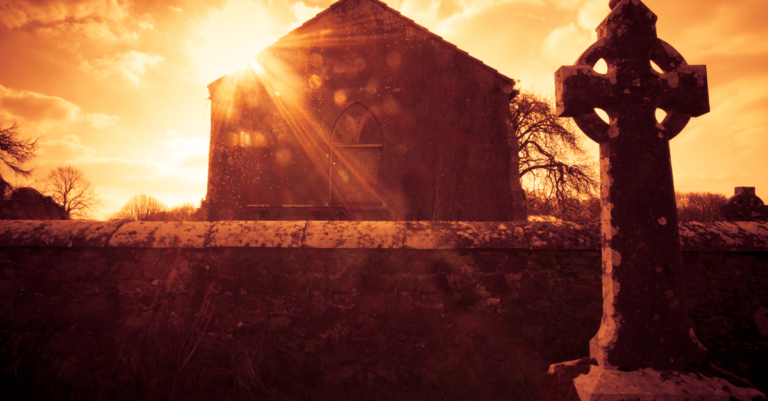People who study the Celtic culture, language, and history usually pronounce it as "Keltik," but sports fans say "Seltik."
My family loves basketball, and from my name, you may have guessed that I have some Irish heritage, so I grew up hearing about Boston’s team, the Celtics. That’s spelled with a C, but I also know many academics refer to the language as “Keltic” (which can be spelled with a C or a K, but is pronounced like a K). So I started wondering: What’s the deal? What’s right? Is it “Seltic” or “Keltic”?
Modern dictionaries say both pronunciations are acceptable. All the dictionaries I checked put the “Keltic” pronunciation first, but contrary to what you may have been told, the first pronunciation listed in a dictionary isn’t necessarily the correct or the most common pronunciation.
Is the first dictionary pronunciation the best one?
From what I can tell, it seems like this rule was more common in the past. In some dictionaries, especially older ones, the first pronunciation may be considered to be the preferred one, but it’s definitely not a universal rule.
So for our “Seltic/Keltic” debate, it doesn’t really matter that most modern dictionaries list the “keltic” pronunciation first.
The argument for the ‘Keltic’ pronunciation
The argument for the “Keltic” pronunciation is that it comes from the Greek word “Keltoi,” but although the people the Greeks called the Keltoi may have spoken an early form of Celtic, they didn’t inhabit the British Isles — the lands we think of as Celtic today. Instead they lived in a large region of Western Europe called Gaul, which, from what I could gather included France, Spain, Luxembourg, Belgium, and parts of other regions.
The American Heritage Dictionary has a particularly interesting usage note on the pronunciation and says that “The introduction of the (k) sound is a linguistic change started by scholars, contravening the historical development of the word.” In other words, it doesn’t match the real history.
The argument for the ‘Seltic’ pronunciation
The argument for the “Seltic” pronunciation is that the word didn’t come from Greek. Instead, it came into English in the early 1700s, in the way we use it today — to refer to certain peoples of the British Isles — from the French word “celtique.”
“Celtique” made its way into French from Latin, and nearly every other English word we got from Latin-derived French that starts with C-E-L is pronounced with the S-sound — “celestial,” “celebrity,” “cell,” and “celery,” for example. (I couldn’t find a word that doesn’t fit that pattern, but that doesn’t mean a rare one couldn’t exist that I missed. )
A source called “The Big Book of Beastly Mispronunciations” by Charles Harrington Elster documents what various usage guides and dictionaries have advised over the last 150 years or so, and found the same lack of consensus we see today. Early on, “Seltic” appears to have been preferred, then later some American sources say “Keltic” is the British form, but some British books disagree.
You can even see the switch by looking at old and newer editions of Fowler’s Modern English Usage.
The 1926 edition says “Seltic” is preferred, and the 1996 edition says that “Keltic” is preferred except for the Boston Celtics and the Glasgow, Scotland, soccer team called the Celtic Football Club.
So what’s a person to think? What should we say? Well, my understanding is that the “Keltic” pronunciation is greatly preferred by people who study the culture, language, and history, to the point that if you call it anything else, they’ll look down on you. But if you are attending a basketball game in Boston or a football game in Glasgow, you’re rooting for the Celtics.
Finally, I’ll leave you with this quotation from J.R.R. Tolkien from an inauguration speech at the University of Oxford.
“Celtic ‘is a magic bag, into which anything may be put, and out of which almost anything may come . . . Anything is possible in the fabulous Celtic twilight, which is not so much a twilight of the gods as of the reason.” — J.R.R. Tolkien
Image courtesy of Shutterstock.




